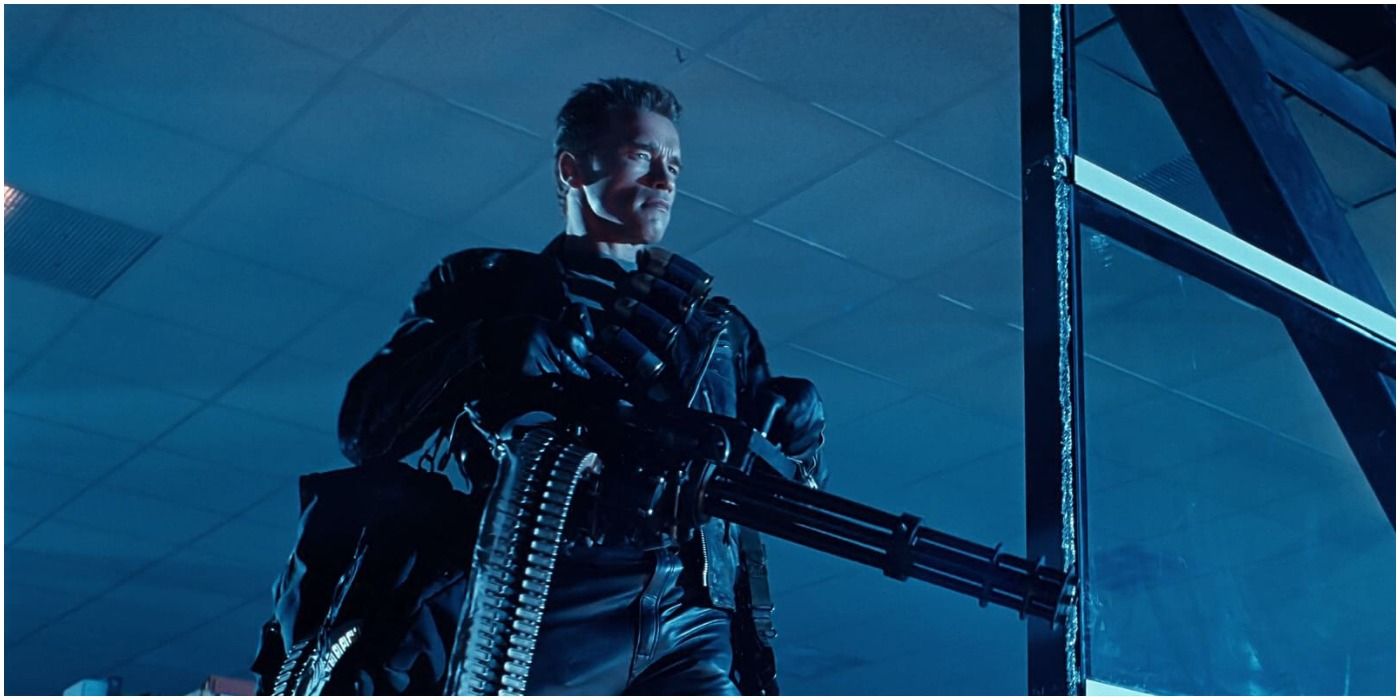The plots of the Terminator movies might focus on time-traveling killer robots, but franchise creator James Cameron had more human concerns on his mind when he was directing the first two Terminator films.
Cameron spoke about the deeper meaning of the series when participating in The Ringer's oral history of the production of Terminator 2: Judgement Day, in honor of the 30th anniversary of the hit film's release.
When discussing the sequel's memorable new villain, the liquid metal T-1000, Cameron's co-writer William Wisher explained the decision to make the new Terminator a cop. "We thought, 'Well, if he's a police officer, he can go places and do things and won't be questioned,'" Wisher said.
Cameron also elaborated on the matter. "That was just me having fun with an authority figure. But there is a thematic point to that, which is that we, as human beings, become terminators," Cameron said. "We learn how to have zero compassion. Terminator, ultimately, isn't about machines. It's about our tendency to become machines." The arc of Arnold Schwarzenegger's Terminator in Terminator 2 serves as a mirror image of this observation on humanity: he's built as a killing machine but gains empathy and humanity.
These comments parallel those made by Cameron in the 2010 book The Futurist: The Life and Films of James Cameron by Rebecca Keegan. There, he said, "The Terminator films are not really about the human race getting killed by future machines. They're about us losing touch with our own humanity and becoming machines, which allows us to kill and brutalize each other. Cops think of all non-cops as less than they are, stupid, weak, and evil. They dehumanize the people they are sworn to protect and desensitize themselves in order to do that job."
James Cameron is no stranger to presenting his political perspectives through the medium of mass-appeal blockbusters. Aliens followed the lead of Ridley Scott's original Alien in its commentary on corporations, Titanic centered heavily around class conflicts and Avatar was about fighting against imperialist destruction of the environment.
When it was released in 1991, Terminator 2: Judgement Day was the most expensive film ever made, not adjusting for inflation. The sequel made $590.9 million at the international box office ($205.8 million in the United States and Canada alone), which was over six times the total of the first Terminator film. Terminator 2: Judgement Day went on to win four Academy Awards for Best Makeup, Best Sound, Best Sound Effects Editing and Best Visual Effects. It was also nominated for Best Cinematography and Best Film Editing. An extended edition with an alternate ending was released on home video in 2015, and a 3D version was released in theaters in 2017.
Source: The Ringer

